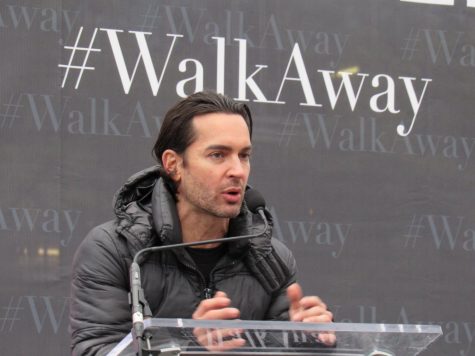The #Walkaway Movement Won’t Gain Much Ground
By Ned Sheehan

In recent weeks, Republican circles in particular have been buzzing with discussion of a new movement that they say could transform politics. This is called the #WalkAway movement, and it involves a group of Democrats switching over to the Republican Party due to an alleged shift toward socialism on the part of the Democratic Party.
In my opinion, this is a total non-event that will have minimal impact on American politics. First off, we need to remember the recent political history of our country. To put it in the quickest and least tedious way possible: until the 1970’s, there were considerable factions, both of liberal Republicans (mostly from the Northeast and Pacific Northwest) and conservative Democrats (almost entirely from the South). This was the natural effect of a political system whose member’s partisan alignment had roots in what side their families took. Members who supported the Union were mostly Republican, and those who sided with the Confederacy, or weren’t on board with the Unionists for primarily being Democrats.
However, as FDR, Truman and LBJ turned the Democrats into a left-of-center political party, and conservative forces led by Barry Goldwater and Ronald Reagan took over the GOP, southern voters switched to the Republicans and northern liberals switched to the Democrats. This political realignment built around entire demographics slowly switching parties en masse, with liberal northern Republicans, African-Americans nationwide and others going to the Democrats while conservative white southerners switched to the Republicans. Yes, that means many individuals switched parties, but they did so as part of a wider wave.
Now, let’s compare that to the #WalkAway movement. I honestly doubt there’s some group of people that is disturbed that the party is becoming some socialist force. There are millions of Democrats, namely Bernie Sanders voters, who think the party isn’t socialist enough. Furthermore, recent polling has shown that a majority of rank-and-file Democrats have shifted towards more left-wing positions on issues like the Black Lives Matter movement, wealth inequality and single-payer healthcare. Now, I’m sure there’s the odd Democrat on the margins who has switched recently and the odd Republican switching the other way, but these are not the sort of great shifts of party that characterize a major realignment.
Honestly, more than anything, this supposed movement seems like a Republican operation designed to try to mobilize the voters as the midterms approach.Even if a significant portion of Democratic voters were to suddenly leave, this shift wouldn’t necessarily be fatal for the party. Data has shown that millions of people voted for Barack Obama in 2012 (and even more in 2008) but didn’t bother to vote at all in 2016. Getting those non-voters mobilized would be a far more fruitful thing for the party than trying to hold on to a group of voters who are likely pretty out of step with mainline Democrats to begin with. Having a tighter core isn’t a bad thing for a party.
Indeed, decades of opposition in Congress helped make the Republicans the disciplined fighting force they are today. It honed their messaging, fundraising and policy apparati to a degree that the Democrats could only dream of at the moment.
In short, to those Democrats reading this, I wouldn’t worry too much, and to those Republicans doing the same, I wouldn’t be too optimistic.
It seems like politics today are increasingly about rallying around your own side, not trying to win over the opposition. That’s likely a bad thing for civil discourse, but it’s really pretty normal, globally speaking. Now hopefully we can all “Walk Away” from these sorts of pointless political non-stories.
Ned Sheehan, FCRH ’22, is a history major from Needham, Massachusetts.










































































































































































































Sputnikaxe • Sep 16, 2022 at 10:27 am
I believe Regan braces the GOP when the Dems went towards socialism. The Progressive/communist party has been eroding the sands are many an honest liberal. And have formed a fanatical, hate filled cult of intolerance, religious bigotry, and lawlessness. Wit the voting block falling into 3 groups, it is easy to see the swing towards conservatism.
Truman. E • Jan 16, 2019 at 8:35 pm
How can I join the walkway assoc. Please send me the address/phone.
Thanks